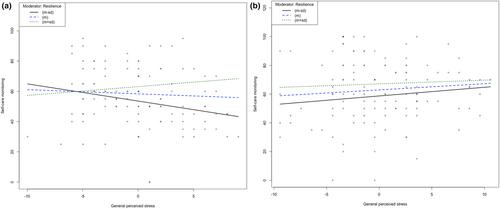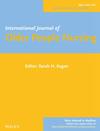Social determinants of health (SDH) are mainly comprised of structural and intermediary domains. Emerging evidence suggests that the burden of multiple chronic conditions (MCCs) in older adults is exacerbated by structural determinants (e.g. low income and low education). However, less attention was paid to the intermediary determinants (i.e. material circumstances, psychosocial factors and behavioural factors) of MCCs.
To investigate the associations among perceived stress, resilience and self-care in Chinese older adults with MCCs by comparing urban and rural groups.
A convenience sample (125 and 115 participants from urban and rural settings, respectively) of Chinese older adults with MCCs was enrolled between January and April 2022. Hierarchical multiple regression analyses and propensity score weights were used to determine the associations among perceived stress, resilience and self-care.
Hypothesis 1 regarding the negative associations between perceived stress and self-care was fully supported in the rural group. However, for the urban group, the negative association was only supported for the relationship between MCCs-related perceived stress and self-care maintenance. Hypothesis 2 was fully supported regarding the positive associations between resilience and the three components of self-care in both groups, although the relationship between resilience and self-care monitoring was marginally significant in the urban group. Hypothesis 3 regarding the moderating effect of resilience was only supported in the relationship between general perceived stress and self-care monitoring in the rural group. After adding the propensity score weights, the moderating effect was no longer statistically significant in the rural group.
The urban–rural disparities in the Chinese context might largely be attributed to the complex interactions of the structural determinants and intermediary determinants. Findings can inform the development of culturally tailored interventions to promote self-care and reduce urban–rural disparities for Chinese older adults with MCCs.
With the increasing number of older adults in China who are living with multiple chronic conditions and the call for effective interventions to improve their health outcomes, current findings can inform the development and implementation of nurse-led culturally tailored interventions to promote self-care and reduce urban–rural disparities for Chinese older adults with MCCs.



